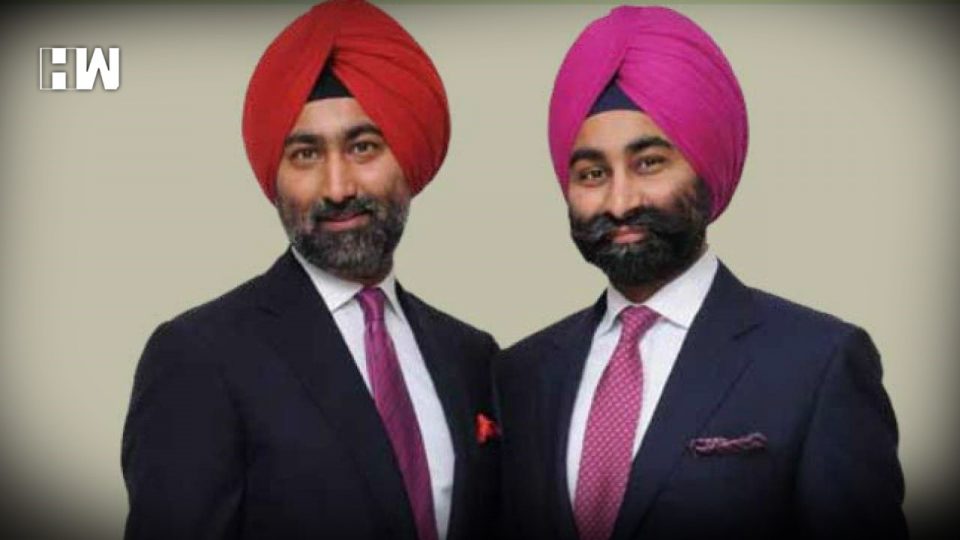If anyone is in need of a 101 tutorial on how poor corporate governance can run a billion-dollar conglomerate empire so far into the ground, that next to nothing can be salvaged from it, just ask the Singh brothers, Shivinder and Malvinder, that is if you can get them to talk about it. An empire that boasted mighty investments across Pharmaceutical, Healthcare and Financial Service sectors is now in shambles and the Singh brothers are embroiled in a legal battle with investors, regulatory authorities and most recently, with each other. With a Shakespearean tragedy having befallen upon them, the Singhs’ have only themselves to blame and are at the receiving end of accusations from a host of stakeholders.
The story unfolds in 1999 when the Singh brothers inherited a publically listed company that included a licensed subsidiary to sell drugs to a highly profitable US market from their father, Parvinder Singh, in their relatively tender mid-twenties. Things ran smoothly for a few years with revenues and profits rising steadily until in June 2008 the brothers decided to sell their stake in Ranbaxy, which by that time was one of the poster boys of the Indian pharma sector. Within a few months of the sale to Japanese drug maker Daiichi-Sankyo at a value of $2.4 billion (roughly Rs 9500 crores), Ranbaxy got into trouble with the United States Food and Drug Administration (FDA), after the regulator issued two warning letters to Ranbaxy accusing them of adulteration of drugs. After a five-year probe by US department of justice, Daiichi agreed for a $500 million settlement and in 2012 they filed a case against the Singh brothers in Singapore Court of Arbitration, for concealment of information during the sale of Ranbaxy. In 2016, a Singapore arbitration court heard the plea of Daiichi and came to a conclusion that the Singhs had concealed vital information about ongoing proceedings which led to the Japanese drugmaker shelling out $500 million in fines to US FDA authorities. The court directed the Singhs to make restitution to Daiichi for the amount of $500 million plus interest of $50 million amounting to approximately Rs 3500 crore.
The early 2000’s were a bountiful time for the Singhs, with them ramping up their financial services arm Religare, branching out into financing, insurance and wealth management which began as only a stock brokerage firm in 1982. It was in 2001 that the brothers founded hospital chain Fortis Healthcare, which grew exponentially since inception and went on to be listed in 2007. The company saw its revenues grow more than six times between 2008-09 and 2012-13 to Rs 4,395 crore and the net profit jumped 23 times during the same period. During the same year, Fortis surpassed Apollo Hospitals and became the largest hospital chain in India by revenues.
The drop in the fortunes of the brothers came as rapidly, if not quicker than their meteoric rise. Buoyed on the back of successful ventures in healthcare and financial services, both Fortis and Religare went for massive expansion through inorganic route largely financed through debt. Religare did as many as six acquisitions, while Fortis sealed more than 10 acquisition deals to expand its presence. These, however, didn’t pay off and the Singhs unwittingly burdened themselves with a mountain of debt. Adding to this, an unsuccessful acquisition of a private charter airline business added to their problems. The fallout of Fortis and Religare also coincided with their trouble with the Daiichi-Ranbaxy deal.
Throughout the highs and lows of their business and personal saga and their ever-changing fortunes, one thing remained constant in the lives of the Singh brothers. A man named Gurinder Singh Dhillion, spiritual leader of the Radha Soami Satsang Beas, a spiritual commune that sits along the river Beas in northern India and has the backing of 4 million followers worldwide. Mr Dhillion is the maternal uncle to the brothers and has acted as a father figure in their lives since their biological father passed away in 1999. He claims to have acted in an advisory capacity to the brothers keeping their best interest in mind every step of the way. A little digging and a few questions fired in the right direction terminated any misconceptions that may have been developed.
As an independent media platform, we do not take advertisements from governments and corporate houses. It is you, our readers, who have supported us on our journey to do honest and unbiased journalism. Please contribute, so that we can continue to do the same in future.

